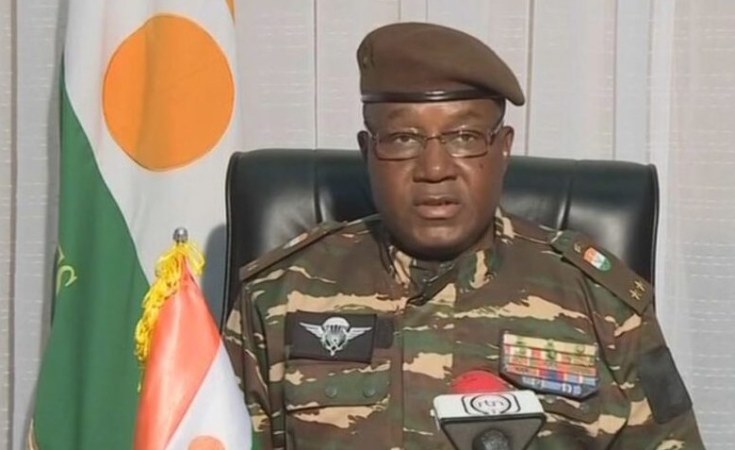Mali reaffirmed its exit "without delay" from West African bloc Ecowas, saying it was not bound by the organisation's one-year timeframe for withdrawal. A few hours later, Burkina Faso and Niger also said they intend to leave immediately.
Bamako's military government announced its withdrawal from the Economic Community of West African States (Ecowas) on 28 January, along with neighbouring Burkina Faso and Niger.
Article 91 of the bloc's treaty stipulates that member countries remain bound by their obligations for a period of one year after notifying their withdrawal.
But "the government of the Republic of Mali is no longer bound (by the) time constraints mentioned in article 91 of the treaty," the foreign affairs ministry said in a letter to Ecowas on Wednesday.
The letter said that Ecowas had rendered the treaty "inoperative" when it failed to meet its obligations by closing member states' borders with Mali in 2022, denying it access to the sea.
And Mali decries other severe sanctions from the bloc affecting its economy.
Late on Wednesday evening, Burkina Faso and Niger also said they intend to leave immediately, despite the bloc's one-year rule.
Ecowas had imposed heavy sanctions on Mali as the bloc tried to push for the early return of civilian government with elections.
"The ministry reiterates the irreversible nature of the government's decision" to withdraw "without delay from Ecowas due to the organisation's violation of its own texts," the letter said.
Emergency meeting
West African foreign ministers are to hold emergency talks on Thursday, as they're weakened by these disputes with military rulers in three coup-hit countries and now a major political crisis in Senegal.
Ecowas' Mediation and Security Council said ministers would gather in Nigeria's capital Abuja on Thursday to "discuss current security and political issues in the region".
It was unclear on Wednesday whether any Senegalese minister would attend.
Ecowas has urged Senegal -- one of its most stable member states -- to return to its election timetable, but critics have already questioned the group's sway over increasingly defiant member states.
Senegal's troubles are a "new crisis Ecowas doesn't need," Beninese political consultant Djidenou Steve Kpoton told AFP. "Its powerlessness in the face of the situation is self-evident."
The turmoil has also brought the almost 50-year-old bloc's broader role into doubt.
Other analysts said they had confidence in the bloc's long-term ability to deal with regional problems through mediation. But with its reputation at stake, Ecowas' handling of the latest political upheaval is being closely watched.
The Economic Community of West African States (ECOWAS) will hold an Extraordinary Session of the Mediation and Security Council at the Ministerial Level on Thursday, February 8, 2024, at its Commission Headquarters in Abuja, Nigeria. pic.twitter.com/zLl0fkTzJ6-- Ecowas - Cedeao (@ecowas_cedeao) February 7, 2024
Regional fractures
The military regimes in Burkina Faso, Mali and Niger announced their immediate withdrawal from ECOWAS in late January, accusing it of posing a threat to their sovereignty.
The regimes have had tense ties with the bloc since coups took place in Niger last July, Burkina Faso in 2022 and Mali in 2020.
Ecowas has sought in vain a swift return of civilian rule in the three countries, but they have hardened their positions in recent months and joined forces in an "Alliance of Sahel States", created last September.
Some observers fear the exit of three founding members of the group, formed in 1975, could compromise trade and push back the return to civilian rule in the countries concerned as they battle poverty and jihadist violence.
(with AFP)


